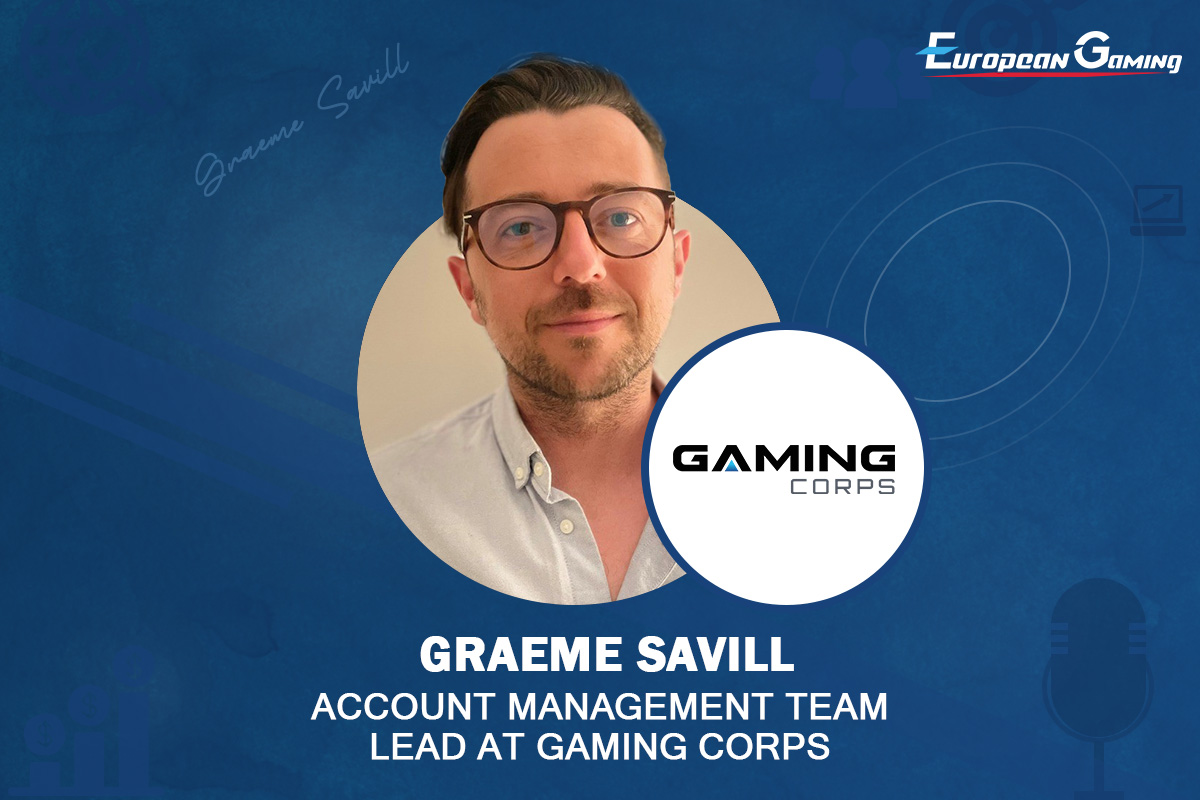Interviews
Mobile-first gaming round table with experts from Habanero, Evoplay, OneTouch and ESA Gaming

In recent years, mobile-first gaming has rapidly risen as smartphone companies continuously enhance their products, making it easier for players to access games whilst on the go. This technological development has brought forward an industry shift, that has seen iGaming companies redirect their focus towards mobile-first content.
With more and more companies embracing the increase in mobile gaming, we explored the success of this new generation offering and what the future holds.
According to you, what brought forward the increase in mobile-first gaming?
Arcangelo Lonoce – Head of Business Development at Habanero:
The watershed moment came a number of years ago when smartphones finally managed to deliver a properly premium gaming experience. Indeed, phones have improved exponentially to the point where you could argue that mobile technology is as good as if not better than desktop.
This has been made possible by the improvements in ‘light betting’, by which I mean data, allowing players to enjoy parallel matches etc. When you can reach that point, laptop gaming becomes obsolete as you can flick through just as seamlessly as on desktop. Just of course like the wider world, when it comes to relaxing on the couch, mobile will always be your primary channel over a laptop – whether that’s shopping, gaming or Instagram.
Of course, with HTML5 becoming ubiquitous and flash disappearing has accelerated the mobile-gaming trend. You can look at emerging markets or countries that never went through the ‘laptop era’, as given the leap in tech developments in the last decade, it means that smartphones are simply more affordable and accessible to players than MacBooks ever will be. Latin America is a great example of this.
Vladimir Malakchi, CCO at Evoplay:
The accelerated growth and penetration of global smartphone usage across every corner of the world is the key driver behind the impressive rise we have seen in smartphone gaming. Data from 2021 reveals that over 6 billion people use mobile phones worldwide, and this number continues to grow, with the 5G standard being one of the catalysts. Emerging markets are catching up fast too – with the majority of regions now greatly investing in the development of mobile technology.
In addition to this, according to our research, three-quarters of gamblers prefer to play on mobile, doing so every 4.2 days on average. Other sources show that in 2020, 50% of the online gambling revenue came from mobile, which isn’t surprising as 75% of traffic belongs to mobile. The numbers clearly don’t lie, and the high demand for mobile gaming is a call to action for suppliers to accept this trend.
Thomas Smallwood, Head of Marketing at ESA Gaming, comments:
A mix of technology and convenience is the short answer. Mobiles now provide a simpler and faster way for players to enjoy their favourite games. It’s fair to say that the trend towards mobile has also probably been accelerated during the pandemic as the move from retail to online has quickened.
Madis Raus – Head of OneTouch:
Obviously, the widespread use of smartphones and availability internet has had a positive effect on mobile-first gaming. These days people use mobile devices to perform certain tasks, their far easier to use and more accessible than laptops and desktops. Additionally, mobile devices allow people to do things whenever and wherever they want, whether they’re commuting or simply passing time.
By making the mobile-gaming experience seamless and engaging at the same time, players will continue using mobile devices for entertainment. This is something which will naturally increase over time, as mobile devices continue advancing and being capable to perform at higher standards.
Are there any verticals that perform better on smartphones? And how can developers improve those verticals that don’t work as efficiently?
Arcangelo Lonoce:
As an expert on slots and table games – I would say table games are inherently easier to develop and render when performing on smartphones compared to slots, but if we look at numbers, slots are dominant, with a market share of around 85% or so, which shows that the player demand this vertical more than any other.
However, looking at table games, there’s a lot to be said about performance. They have excellent stable rates of acquisition and retention – so there is less motivation to tweak a formula that is clearly working. They also have higher average bets, greater lifetime value and from a mathematical and user interface viewpoint, I would certainly rank them up there as one of the best performers.
Given market demand though, we can assume slots will always retain the lion’s share. So how does one improve the vertical? Stories, subject matter and narrative are key, as is the UI, although we mustn’t forget, it all starts with the maths – you need to get that right first, and then you can start talking other improvements.
Vladimir Malakchi:
Actually, all verticals and mechanics perform well on smartphones. However, while creating a product for hand-held devices, there are key principles to follow: easy-to-understand UX, simplicity of a game, uncomplicated graphics, and adaptation to vertical view.
One thing is for sure – it makes no sense for suppliers to choose a specific type of game to develop for smartphones. The fundamental point is to accept that the mobile-first approach is a basic demand for players.
Thomas Smallwood:
I think sports betting is a natural vertical for mobile. With the ability to play high-quality live streams on mobile devices, in-play betting is no longer just for retail or desktop and the fact that bets can be placed anytime, anywhere is a major factor.
The limit in phone storage also means that casino can be trickier on mobile, especially in apps where users often need to download the games they want to play exactly because of this limitation.
These are two factors behind ESA Gaming’s development of ultra-lightweight games for sportsbooks. The EasySwipe suite of games is accessed through a widget we have designed and developed which enables players to seamlessly move between games and sports bets rather than being re-directed to another part of the site or a cumbersome casino page. The sports betting experience is unhindered and conversion to casino games happens at lower cost.
Madis Raus:
Mobile device usage differs slightly from desktop usage, this means that mobile users have different expectations. Since people use mobiles to pass time or when they’re in between things, the attention span of the mobile user is often shorter, these are things to consider when providing content to them.
In my opinion it’s the matter of the speed of games rather than specific verticals, fast games tend to perform better, as the player doesn’t need to wait too long, which is a bonus especially when they’re looking to kill some time.
To improve further, developers need to consider the peculiarities of mobile device usage and think about ways of implementing content that doesn’t depend on usage patterns, making the products more appealing and engaging to players.
What are the difficulties of adopting games to function on smartphones?
Arcangelo Lonoce:
Habanero as a company operates with a mobile-first approach, therefore, we don’t find any real challenge when it comes to rendering games on mobile since our products are designed with smartphones in mind. After all, we disposed of Flash in 2015 and since then we have always developed our games using HTML5.
Vladimir Malakchi:
Adapting a visual component to all models of smartphones, including early versions, isn’t an easy task but is possible thanks to cutting-edge technologies. They allow us to create visually stunning products compatible with most smartphones. The optimisation of UX, UI, resolution and graphics for all platforms is the main priority, as we want to ensure that our players get high-quality content on any device.
Another challenge, which we have also overcome, is the amount of data used by games. Our proprietary game engine Spinential, developed in-house has been a real gamechanger for us, accelerating the loading speed and optimising the storage capacity. This solution has been designed with a purely mobile-first approach in mind, and we’ve really reaped the benefits.
Thomas Smallwood:
The obvious thing is the greatly reduced screen space and the practicality of a hand-held device. Because of this, we have chosen to develop ‘mobile-first games’ and move away from adapting desktop content. This means every aspect of the game is thought out with the mobile user in mind, ideally with the ability to do everything just with a thumb. Of course, the challenge is to make everything on the screen accessible, so it is a constant evolution as the user demands more features.
Madis Raus:
Different game types have different elements, for slots it may be the screen ratio, for example how to make symbols as big as possible and still keep the popular grids. Alternatively for Live games, you need to consider the screen size, ensuring that the player can see what is happening in the stream and whether the cards shown are in sync with what’s being reported etc.
As mentioned above, when adapting games, it’s important to consider the peculiarities of mobile device usage, developers must think about ways they can make games as fast and seamless as possible but at the same time still engaging on a smaller screen.
How fundamental is it for operators and developers to adopt a mobile-first strategy?
Arcangelo Lonoce:
It’s extremely important, otherwise you’re missing out on 80% of the market! There were some suppliers that were very late to the HTML5 adoption, which made it incredibly frustrating for operators – plenty of which I saw first-hand back when I was at BetVictor during the 2010s. To put things into perspective today, you simply cannot launch a game as without considering a mobile-first approach, since you’re forgoing an absolutely huge amount of revenue.
Moreover, mobile gaming allows people to play remotely, therefore players don’t need to depend on a desktop or laptop to participate in their hobby. With mobiles advancing and 5G becoming the norm, we’re now looking at a whole new world of possibilities to enhance mobile-first even more, the ramifications of which will be huge, especially when it comes to content and loading speeds.
Vladimir Malakchi:
Keeping in mind the number of global smartphone users, prioritising mobile devices when creating gaming products is a must. Moreover, it is expected that in a couple of years, this number will grow to seven billion. Currently, the US, China and India lead the list of countries with the highest rate of mobile penetration. However, as the latest data shows, the potential of emerging markets in regard to mobile usage shouldn’t be underestimated. This is a direct sign for suppliers to throw all efforts on products focused on mobile gamblers. The mobile-first approach isn’t just a trend, it is a philosophy, which is getting more and more supporters. There is no better time to embrace mobile-gaming than now.
Thomas Smallwood:
You could argue it is a percentages game. When desktop provided the higher user count it made sense to develop content for desktop. With the advancements in mobile technology, the increased numbers using mobile and the loyalty associated with apps I think a ‘mobile-first’ strategy is key in the growth of any gaming brand.
Madis Raus:
This is very essential, especially when it comes to companies surviving in this extremely volatile industry. Just by looking at how much traffic is already generated from mobile channels, you can see how strong the area is, and there’s nothing that indicates a potential decrease in mobile device usage.
If companies wish to attract modern players, it is really essential to adopt a mobile-first strategy, as modern players will look for a seamless mobile experience, if it isn’t available on your brand then they will simply look elsewhere.
With smartphones continuing to evolve, what does the future hold for mobile-first gaming?
Arcangelo Lonoce:
I would expect mobile-first gaming to be the only way forward – it’s the old debate on how much entertainment is a part of iGaming. Whilst entertaining is a key aspect, you must also keep the experience flawless. Certain things haven’t worked out, 3D gaming for example, as we’ve learnt that people don’t really gamble to get lost into the symbology of the slot – but rather the thrill of the win, which is the entertainment.
So, in my view, mobile gaming will gain an even larger market share than it has now, it could soon become by far the only way of enjoying this experience. Additionally, with new demographics coming online, the future holds lots of opportunities for interaction of everything from social to multiplayer, shared in any possible way. Cross-sell opportunities are also endless, with push notifications and the like, as players can carry their game anywhere they go – whether that’s being entertained at home, when out and about or during the commute.
Vladimir Malakchi:
I am sure that we will see an industry-wide adaptation of gaming content to mobile platforms in the very near future. Once the value of mobile gambling is fully understood, the industry will immediately aim to transform existing and future products.
I believe the iGaming world will continue to develop in this direction as an exponential pace, focusing on innovative technical solutions, mechanics, features and visuals optimised for various mobile platforms, models and markets. The key is to find the balance between the quality of gaming products and their adaptation to mobile – and getting this right is where developers need to be investing their energy.
Thomas Smallwood:
Smartphones will continue to develop but I would place more focus on the changing user demands. New game types, more regional content as well as promotion and gamification features are already driving us to change the titles we design and develop.
We will soon launch new in-game promotional tools for operators as well as new style of games, including bespoke games.
Madis Raus:
I believe that the introduction of 5G will bring a ton of opportunity to the table, as the introduction of 5G will bring forward a range of improvements to speed and accessibility. This may also give developers a bit more freedom when they think about creating games for mobile phones.
With smartphones being so advanced these days, the size of the game doesn’t matter as much as it once did, the quality is now the utmost important factor when it comes to designing new mobile-games. This is the same with live content, with the technological improvements, it’s now easier to provide good quality streams, so now developers need to focus on other elements that will make their game stand out from the competition.
Interviews
The complete package

Edgar Pau, Head of Studio at Red Desert Games, says mechanics are important to the success of a slot game but all components must come together in harmony for it to be a chart-topping success.
Are game mechanics the most important thing for studios to get right?
For a game to succeed, studios must get the whole package right and while mechanics are a core part of this, they must also nail the maths, theme, art, sound and UX, and then bring all these factors together in a way that immerses players in the action. No one thing on its own will be enough to make the game a hit with players. When it comes to mechanics, you need to have a clear goal of what it is, how it brings differentiation to the game and what makes it exciting for the player. The mechanic must also fit with the maths – if the math model makes the mechanic appear too frequently (or infrequently) it can dilute the influence and value of the mechanic and lead to different reactions from players.
Do mechanics offer studios the greatest room in which to innovate and stand out from their rivals?
The online slot market is fiercely competitive with more studios getting in on the action every month. Studios must differentiate, and in the absence of having well-recognised land-based games, mechanics offer the easiest route for standing out and connecting with players online. Some studios have turned to things like hybrid themes and licenses to launch branded slots to help them get ahead of their rivals, but for me, mechanics are the best way of doing this as they help the studio create its own identity and hallmark. If you look at both the land-based and online slot markets, it’s mechanics that have been the game-changers in recent times in the form of Lightning Link from Aristocrat and of course Megaways from Big Time Gaming. This is why so many studios are dedicating significant resources to developing proprietary mechanics and then filing to trademark their IP.
Is this a challenging area for studios to get right?
Very much so. There is absolutely no science behind it and it’s often the case that a mechanic you think is great and will hit the mark with players falls short. It’s also hard to come up with a new mechanic and how far to go with it – do you bring something entirely new to the table or look to incrementally improve something tried and tested in the market? Some of the mechanics I have seen are far too ambitious and make light-years leaps forward. While the studio should be commended for being bold and brave, players ultimately like familiarity and are reluctant to spend time and money learning an overly complex mechanic or stick with one that initially seems to be familiar but as they play it, moves too far away from the core experience they like. That’s why studios need to carry out comprehensive market research, understand what players are looking for and keep asking themselves if the mechanic they are developing is something they will actually want to play or not.
How is Red Desert Games approaching mechanics? How do you ensure your games deliver what players are looking for?
Most of the team at Red Desert Games are slot players, and this really helps in building our understanding of what players are looking for from the next generation of slot games they play. We always have open discussions or share videos and pictures of games or mechanics we have played and liked. We are also careful not to take things too far – our approach is to do something that incrementally innovates on what is out there, whether it’s a symbol, reel strip, reel structure, gameplay or some other variable rather than reinventing the wheel. This is why our definition of a mechanic is pretty broad.
In terms of delivering what players are looking for, I think it’s important to first identify what segment of the player base you are trying to target. You can’t be everything to everyone as some of the things different player groups want are mutually exclusive. Once we’ve done this, we run our initial math model through our proprietary simulator where we can adjust parameters and run simulations over tens of millions of spins and sessions which gives us insights into what an individual session looks like from a player’s point of view.
We’re also very self-critical of our games and are always asking ourselves if we were playing this game, what’s good and what’s bad about it. We’ve even had games where we’ve gone 90% down the production path and completely shelved it or reworked it. Of course, those were our learning experiences and we’ve put in processes and stop checks to ensure that this doesn’t happen anymore as it’s a very inefficient way to develop.
Does online provide a studio with more opportunities to push the boundaries than when developing for land-based? You develop for both so how does this impact your approach to mechanics?
100%. There is more flexibility when developing online games versus land-based games, especially in markets outside of North America. As an example, in the Australian land-based market, metamorphic games are not permitted and many of our online games would never be allowed in retail casinos. In the United States, they are less restrictive, but they still have requirements that limit what studios can do. In Michigan, for example, the maximum advertised win must land once every fifty million spins. And those land-based requirements usually carry into the iGaming regulations as well. Now go to Europe, Asia or Latin America and you won’t find these sorts of restrictions. In terms of how this impacts our approach to mechanics, we actually have teams making games for both online and land-based. So being the more flexible market, it doesn’t affect us on the online side. In markets such as the U.S., having a land-based business gives our team an advantage as some of our designers have been making land-based games for almost 30 years and they’re familiar with the regulations and restrictions and how to work around them. As the same restrictions are typically present in both online and land-based, we can easily adjust the online games to satisfy the regulations.
How do mechanics differ from market to market in terms of player preferences? Where are the greatest differences?
It really varies from market to market. Not just the popularity of certain mechanics, but also in the type of games, the themes and the math preferences. If I look at the U.S. market, it’s clear that some of the popular land-based mechanics are also performing well online, such as hold and spin/cash on reels. Megaways has also been popular in the U.S. But then if you go to markets in Latin America, you see things such as crash games being popular or Dragon Tiger from PG Soft in Brazil, which is a simple but well put together game. I’ve also seen markets where a segment of the player base doesn’t even play the base game and goes straight to the buy feature. In Europe, it’s a real melting pot with the greatest variety of mechanics and game types. This is why developing mechanics is not for the faint-hearted, and why those who enjoy international success such as Megaways should be applauded. But given the runaway success of Megaways, it’s no wonder other studios are looking to bring their own unique, trademarked mechanics to the market.
Interviews
Go direct – Fantasma Games strengthens partner collaboration with proprietary platform

Check out our latest Q&A w/ Fredrik Johansson CEO and Founder, Fantasma Games
Fantasma has recently launched its own FantasmaXpand platform, could you please let us know more about this initiative?
We have seen exceptional interest and demand for Fantasma’s premium and innovative online slot games and we wanted to take our offering to the next level. Launching our own platform, which we call FantasmaXpand, is a strategic initiative driven by our operator partners’ desire to collaborate more closely with us to improve overall business operations and access to our portfolio of games and wider development capabilities. The desire for deeper collaboration from our operator partners clearly indicates that our focus on providing high-performing slots with engaging game mechanics has enabled us to take this next important and natural step to support our partners’ local and global business growth strategies. It is very important for us to maintain the highest level of trust and reliability as we roll out Fantasma Xpand to our network of operator partners and the team we have built at Fantasma is more than capable of doing this.
How will you use FantasmaXpand to deliver more value to your operator partners?
We are all very committed to maintaining the highest level of quality assurance in everything we do, and we follow a clear plan as we expand our operational capabilities to our partners. In short, FantasmaXpand will provide local and global operator partners with a truly reliable, scalable and seamless gateway to access Fantasma’s “beyond gambling” portfolio of premium and innovative content, along with easy-to-use gamification tools. FantasmaXpand will also enable us to drive continued operational excellence while offering our collaborating partners outstanding flexibility and a reduced time-to-market (TTM) for our premium roadmap and the rollout of new innovative features and functions.
How does it enable you to push the boundaries with development?
We pride ourselves on having trustful and meaningful long-term relationships with our partners. FantasmaXpand will allow us to capitalise on these close partnerships and expand our joint collaborative initiatives both locally and globally, in a way that means our partners will be an integral part of how the FantasmaXpand roadmap is prioritised and developed. This means that our teams can focus on enhancing the technology roadmap, tuned and calibrated to our operators’ specific needs, which in turn enhances the overall strategic business partner value we bring and the experience our operators receive when accessing our premium offerings.
Why don’t all studios have their own platform? Does it bring challenges? If so, what?
Fantasma has seen outstanding growth from its operations to date, and as mentioned, our FantasmaXpand initiative is a direct response to our operator partners wanting to expand their overall business relationship with us. Not all studios have the strategy or capability to achieve the organisational readiness required to roll out such initiatives. Instead, many studios choose to focus solely on content development, which may be absolutely fine for them, allowing others to do the heavy lifting. Being ready and planning ahead has been key to maintaining focus and quality in legacy operations, and it is crucial for us not to impact the trust and reliability we have built with our operator partners over the years. As an organisation, you need to be prepared and willing to follow through on strategic initiatives that truly matter for continued sustainable growth in a hyper-competitive environment. One challenge may be daring to take this next step. But with our operator partners behind us, it has been a natural and necessary step for us to take.
Does FantasmaXpand help you enter new markets? If so, what markets have you got your eye on?
FantasmaXpand allows us to be in full control of our business strategy in close collaboration with our operator partners. From a go-to-market perspective, this is crucial, as seamless rollout and release management are necessary to maximise business value for us and our partners. FantasmaXpand is currently certified in many regulatory markets, and we will continue expanding the reach of FantasmaXpand in close collaboration with our partners. In terms of market reach, we currently offer our premium content in all of the major regulated markets in Europe. Our clear organisational objective is to be live with FantasmaXpand in all our regulated markets globally. However, like any expansion, we will implement a phased rollout approach for FantasmaXpand as this is the only way to ensure we don’t drop the ball with our legacy operations and partnerships.
What other developments from Fantasma can you share with us?
We have seen exceptional performance from our 2024 games portfolio, driven by titles such as Gold Pigger, Circle of Sylvan, Pirates Multi Coins and Shadow Summoner Elementals which have surpassed all KPIs. The US market has developed exceptionally well for Fantasma, and we have our eyes on LatAm as an exciting emerging growth market with plenty of opportunities to explore. In addition, our operator partners will benefit from a very exciting roadmap for the rest of the year. This, combined with the rollout of FantasmaXpand, means I am very excited to build continued positive momentum together with our partners. I am very optimistic about the future and our current momentum.
Interviews
Gaming Corps: scoring big with football-themed games

Check out our latest Q&A with Graeme Savill, Account Management Team Lead at Gaming Corps
We’ve just seen EURO 2024 come to a close – was the result of the tournament what you expected it to be? Did any teams surprise you?
It’s been a fantastic event overall and I was lucky enough to attend some of the games in person during the first couple of weeks of the tournament. My team, Scotland, failed to qualify out of the group so my time in Germany was very short-lived but the experience of being there to watch my country with our fans was incredible and I have amazing memories of the trip. In terms of surprises, I’d say Georgia and Turkey both defied the odds of last-16 qualification and had great tournaments while the two finalists, England and Spain, were both worthy of the chance to lift the trophy with Spain ultimately coming out on top.
There doesn’t tend to be much cross-over between sports bettors and slots players. In your view, what opportunities do major tournaments such as EURO 2024 present to gaming providers when it comes to engaging with new audiences? And how did Gaming Corps achieve this?
It’s true that the two segments do vary considerably in their betting preferences and patterns, but these bi-annual football events (the World Cup being the other) create huge opportunities for the industry as a whole. Creating collaborative content and working with tier-one global sportsbook operators has proven a very successful strategy for Gaming Corps while for our partners it allows them to enhance their casino offering and engage more deeply with their player base. We have several football-themed games within our Arcade portfolio including Penalty Champion, Plinkgoal, Football Freestyler and Samba Soccer that operators can access to help do this.
During June and July, we’ve seen record player numbers introduced to these products through cross-sell efforts so it’s been very advantageous to have these included in our offering. In preparation for the event, our product worked around the clock to roll-out dozens of bespoke branded versions of these games which have been front-facing on casino pages with many of our operators. The feedback we’ve received is that during EURO 2024, many casual sportsbook players have enjoyed being introduced to a different style of casino games like our Crash, Mines and Plinko verticals as they deliver a more compelling experience than traditional style casino games such as slots and roulette.
What’s the secret to creating slot titles that appeal to both demographics of players? Should more game developers be turning their attention towards creating slot titles centred around major sports tournaments?
Creating slot titles that appeal to both traditional slot players and sports fans requires a thoughtful blend of themes, features and mechanics that resonate with both audiences. I believe the key to success is around thematic relevance, so creating games for and targeting them to players around key events in the sporting calendar. This allows operators to build hype on the game and players love timely and seasonal titles as a way of being gently guided away from the classic products on the market and towards non-traditional content. Throughout June, a large majority of operators have offered a dedicated category with sports-themed casino games for players to discover which has benefited us immensely as they have stocked more titles from our diverse portfolio. Engaging gameplay features are critical like within our Penalty Champion game where we’ve included the sports-related shootout which adds an extra layer of excitement and engagement. Likewise, balancing game mechanics is important; games must be simple enough for traditional casino players to understand but include exciting elements that appeal to sports fans, such as dynamic animations and fast-paced action. These keep players entertained and eager to sample more products themed around their favourite sports.
With player acquisition costs at an all-time high, how can slots developers retain players onboarded during tournaments such as the EUROS and perhaps introduce them to other iGaming verticals?
There are so many variables here but yes, due to acquisition costs, players must be retained to maximise player lifetime value and loyalty. One example would be the use of in-game advertisements to promote other verticals. This could mean offering free spins in slots for trying out a new sportsbook feature. This is something that we want to work on together with our operator partners for the remainder of 2024 to maximise the opportunity. Likewise, the bundling of promotions can be highly effective in encouraging players to try different types of games. My belief though is that player engagement and communication is the most important factor whereby the strategy actively engages with players on social media platforms to create a community and keep them informed about new products and promotions. This is very true in countries such as Brazil where influencer marketing has been extremely strong in the overall marketing mix.
We have the Olympics coming up in a few weeks’ time, and then the restart of domestic football calendars. Can we expect to see any more sports-themed titles coming from Gaming Corps?
Yes, I do believe that sports-themed casino games will continue to evolve and will be used by operators to attract and retain players. We’re always looking to innovate and bring something new to market and we’ve discussed our latest vertical Smash4Cash and how we can introduce a sports element to it. This approach has already brought us big success in the Mines, Plinko and Crash verticals. We have also been working on games outside of football. Due to operator demand, we did create an ice hockey-themed game which we launched with a localised approach for countries in the Nordics and to enhance strategic partnerships with branded versions of the game for certain operators. This is a fun and engaging product and I’d say watch this space for future sports-themed games that take a similar format. We aspire to become an industry leader in creating fun, innovative and engaging sports-themed content and from the success we have achieved with the first few games we have developed, we too will be lifting the trophy in next to no time.
-

 Eastern Europe5 days ago
Eastern Europe5 days ago7777 gaming is now available on WINBET Romania
-

 Gambling in the USA5 days ago
Gambling in the USA5 days agoGaming Americas Weekly Roundup – July 15-21
-

 Gaming5 days ago
Gaming5 days agoMainStreaming Announces Appointment of Nicola Micali as Chief Customer Officer
-

 eSports5 days ago
eSports5 days agoINSPIRED LAUNCHES RE-PLAY ESPORTS™ FEATURING CS:GO IN PARTNERSHIP WITH KAIZEN GAMING
-

 Industry News5 days ago
Industry News5 days agoSafer Gambling Tools Use Hits Record High in 2023 – New Report from EGBA
-

 Australia5 days ago
Australia5 days agoAustralian eSports Star Joins Team Liquid
-

 eSports5 days ago
eSports5 days agoNODWIN(R) Gaming ropes in Android as title partner for BGMS Season 3; to be powered by Garnier Men
-

 Latest News5 days ago
Latest News5 days agoSpinomenal shines again with Super Wild Fruits release


















































